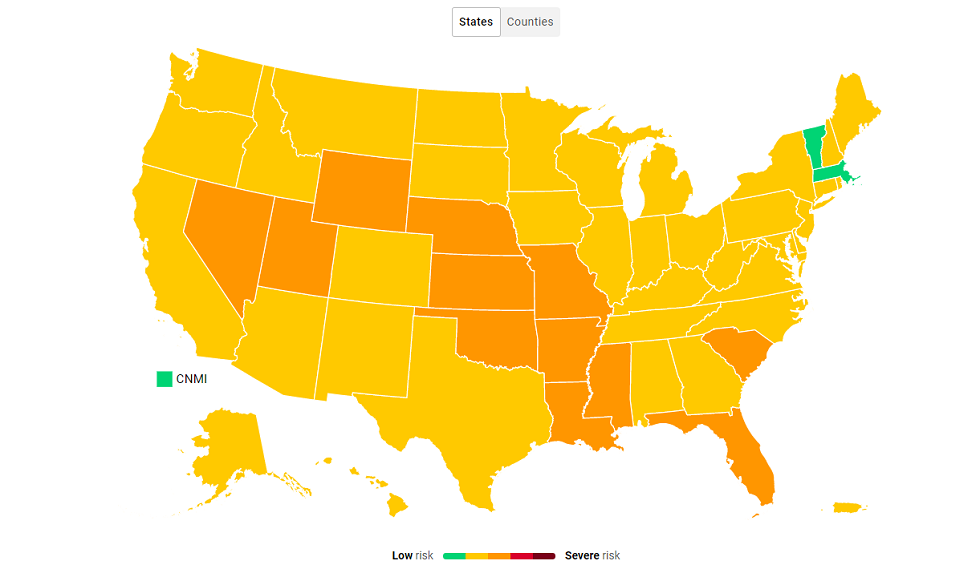Map reveals US covid hotspots with high delta numbers and low vaccinations

A dozen US states mostly clustered across the central and western parts of the country are now areas where there is a high risk of Covid-19 transmission due to below-average vaccination rates and rising case numbers, according to researchers from several prominent US universities.
Data analysed by the Covid Act Now project, which is partnered with Stanford, Georgetown, and a nonprofit associated with Harvard, indicated last week that residents of Arkansas, Mississippi, Louisiana, Nevada, Missouri, Nebraska, Utah, Wyoming, Kansas and Oklahoma were now at “high” risk of contracting the virus if unvaccinated.

Over the weekend two more states were added to that list — South Carolina and Florida – while Maryland moved from “low” to “medium” risk.
Just two states are now considered to be low-risk areas; Vermont and Massachusetts, which are also the two states ranked highest in the nation for vaccinated citizens per capita.
Among the states on the high-risk list are some of the areas with the lowest vaccination rates in the country, including Mississippi, where just over a third of adults have received their first dose, compared to about two thirds of the country as a whole.
Concern about rising rates of Covid-19 in some areas comes as the so-called delta variant has been detected in all 50 US states; the variant is thought to be more contagious than previous versions of the virus, including up to 50 per cent more so than the alpha variant according to Yale Medicine.
“In a completely unmitigated environment — where no one is vaccinated or wearing masks — it’s estimated that the average person infected with the original coronavirus strain will infect 2.5 other people,” F Perry Wilson, a Yale Medicine epidemiologist, said in an interview posted on the school’s website.
“In the same environment, Delta would spread from one person to maybe 3.5 or 4 other people.”
Read More
Canada, US are easing pandemic border-crossing restrictions
Covid vaccine: Gap between jabs to be reduced to eight weeks for all under-40s
Census takers worry that apartment renters were undercounted

